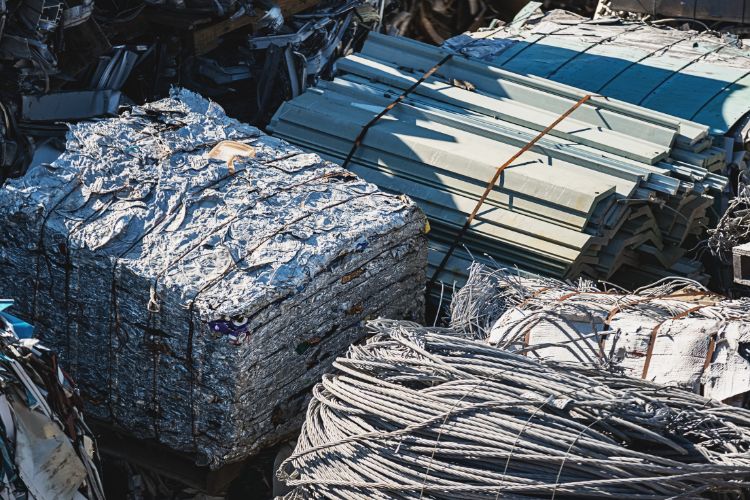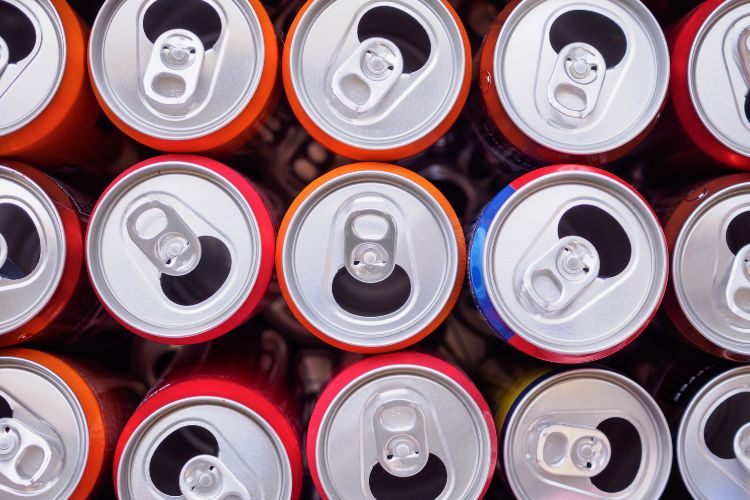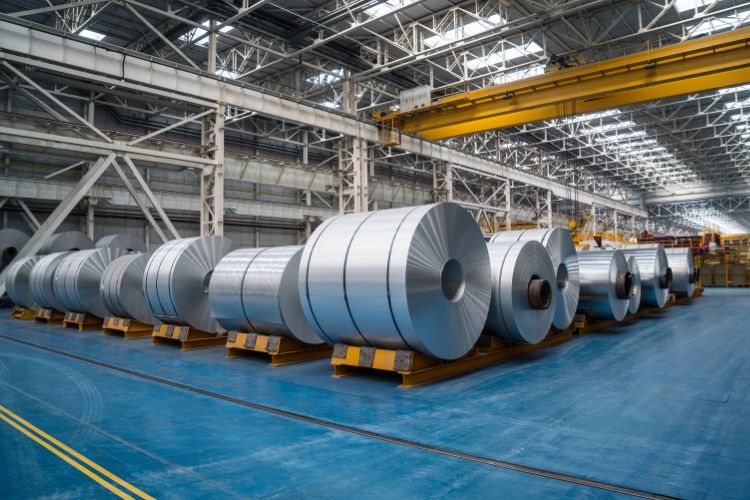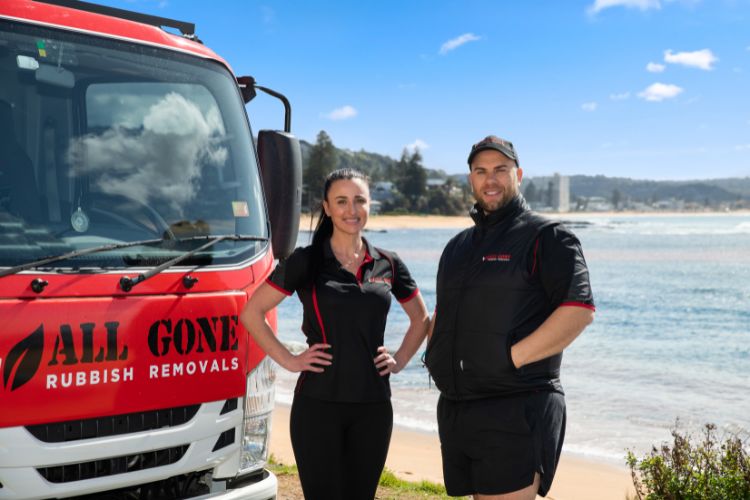10 Facts About Recycling Aluminium and Steel Cans That You May Not Know
From beverage cans to aerosol cans, tins, and everything in between, these everyday items comprise a big part of our commercial use of steel and aluminium.
Next time you look in your pantry or walk down the aisles of a supermarket, you might be surprised at just how much we use these versatile metals. Stronger than plastic, with a comprehensive seal and no chance of chemical leakage or degradation, we often take aluminium and steel for granted when it comes to our convenience and safety.
However, once we have eaten the soup or drunk the soft drink, it is up to us to ensure that these metals continue their journey and don't end up in landfill.
Recycling scrap metal is an incredibly important and sustainable practice, eliminating many of the energy demands that go into smelting raw ore and maintaining our stores of aluminium and steel for ourselves and future generations.
Aluminium and steel are both incredibly versatile materials, being safe, sturdy and able to be used in everything from food containers, transportation, computers, construction and hundreds of other uses.

Here are 10 things you may not know about recycling aluminium and steel...
1. What are the benefits of recycling aluminium and steel cans?
In landfills, aluminium cans can take anywhere from 80 to 200 years to break down fully. As metals, neither bauxite (which is rich in aluminium), nor iron (which is refined to make steel), are inexhaustible, and recycling and reusing the metals we have already dug up, refined and used, is a much simpler process than smelting these materials from scratch.
Often, the metals we recycle from drinking a can of soft drink or opening a tin of preserved food are melted down and then remade into identical cans and tins, ready to hold more food and drink.
2. How does recycling aluminium and steel cans help the environment?
Aluminium is made from refining bauxite, a type of sedimentary rock. Bauxite ore is dug up in large open-cut mines before it is taken for refining and the aluminium is extracted from the raw ore. Steel is the product of refined iron ore that is combined with carbon. Both of these metals require new prospecting and new mines to be opened and dug. Reusing metals that have already been refined saves the energy and pollution associated with transport and smelting, not to mention the mine being a giant hole in the ground!
3. What are the steps involved in recycling aluminium and steel cans?
First, it is up to us, as consumers, to ensure that aluminium and steel cans are put into the recycling bin. While this is generally easy enough at home, it is also important to try to locate recycling bins while out and about. Parks, sporting facilities, shopping centres and other public spaces also often have recycling bins available. Aluminium cans are 100% recyclable, meaning not one piece of it is wasted. The "label" is simply burned away as part of the recycling process.

4. How does recycling aluminium and steel cans help conserve resources?
The International Aluminium Institute notes a general decline in ore quality as existing mines are depleted. This requires more energy expended for the same quality of product, as well as the need to prospect more sites to find ore. Over time, this means mines that are further and further away from urban centres, increasing transportation costs as well as the travel requirements for mining workers.
5. What are the challenges associated with recycling aluminium and steel cans?
Like many environmental initiatives, funding and education are the largest challenges. Products made from recycled metals and the operational infrastructure to do so come from seeking investment in recycling initiatives and encouraging the wider community that recycling initiatives are worth using. Reducing the amount of aluminium and steel that ends up in landfill falls to education, such as this blog, and showing consumers that even their individual actions can make a greater impact on the health of our society and environment.
6. How can we increase recycling rates of aluminium and steel cans?
As mentioned above, encouraging your local members of parliament to push for recycling initiatives is a great way to ensure that the opportunities to recycle and make a collective difference. There are several initiatives around the country, like Containers for Change in Queensland and Western Australia, that offer a monetary return for delivering empty cans to collection depots. Unfortunately, these initiatives have not yet reached NSW, but using your citizen power to push for these initiatives across the country is one way we can increase recycling rates.

7. What are the end products of recycled aluminium and steel cans?
Aluminium, like other metals, can be used again and again as the core material is cleaned, melted down and repurposed into a new product. Most of the aluminium and steel that is used for food packaging (tins, cans, etc.) can be repurposed as food packaging again. Other materials can be used for an array of new purposes, including aeroplanes and cars, construction, park benches, electronics and more.
8. How much energy is saved by recycling aluminium and steel cans?
The energy of refining metals from ore initially is enormous. In contrast, recycling aluminium only requires 5% of that energy. The recovery of aluminium and steel in recycling plants is then a far more efficient and energy-conserving process than digging up the ore from the ground. While rubbish trucks still, of course, have to collect our recycling waste, this is a comparatively lesser use of energy than haul trucks (giant mining dump trucks) and enormous tanker ships used to transport ore.
9. What are the greenhouse gas emissions reductions associated with recycling aluminium and steel cans?
While there is certainly energy used in the recycling process, it is significantly less than the energy required to smelt aluminium and steel in the first place. As the metals are already refined (bar some liquid or food residue), the energy required to melt them down and repurpose them is the smarter environmental choice. Recycling aluminium and steel also results in a reduction in the need for new open-cut bauxite or iron mines, creating a lesser impact on our environment than these giant pits in the ground.
10. What are the jobs created by the recycling of aluminium and steel cans?
Recycling jobs are created when these services are utilised. From collection to sorting to smelting to manufacturing, the recycling and reuse of these metals create a wide range of jobs in the textiles industries, industries that have seen a reduction and move to offshore facilities in recent years. More than this, these recycling jobs are local, meaning workers can stay in their local area with their families, creating a lesser reliance on FIFO (fly in, fly out) work, such as that in the mines for ore.

A better tomorrow for all of us
All of us want to leave the world a better place than we found it, and one of the ways we can do that is by minimising our own individual impact on the earth and our environment. Recycling, particularly for metals like aluminium and steel, is one fantastic, energy-efficient way to conserve our natural resources and leave a better tomorrow for the generations that come after us. While it may not feel like much putting your cans and tins in the recycling bin each day, if we are mindful of where we put our metal waste, our people's power can change the world.
The team at All Gone Rubbish Removals recognise that sometimes recycling can be tricky. Our experienced rubbish removal specialists prioritise recycling and reusing your waste so that as little of it as possible ends up in the landfill. We want to see everything recycled, where possible, and when you have a collection of metal (or more general waste) to get rid of, you can trust that our team will help you get rid of it in the most environmentally responsible way.
Our team services all across Sydney, the Central Coast, Newcastle and the Hunter Valley. Call us today on 0480 047 806 or contact us on our website!
- Eco-Friendly Rubbish Removal Services in Sydney, Manly, and the Northern Beaches - November 21, 2023
- Northern Beaches' Premier Rubbish Removal: Efficient, Reliable, and Eco-Friendly - November 21, 2023
- Green Waste Associated Risks & Staying Safe From Those - November 7, 2023
